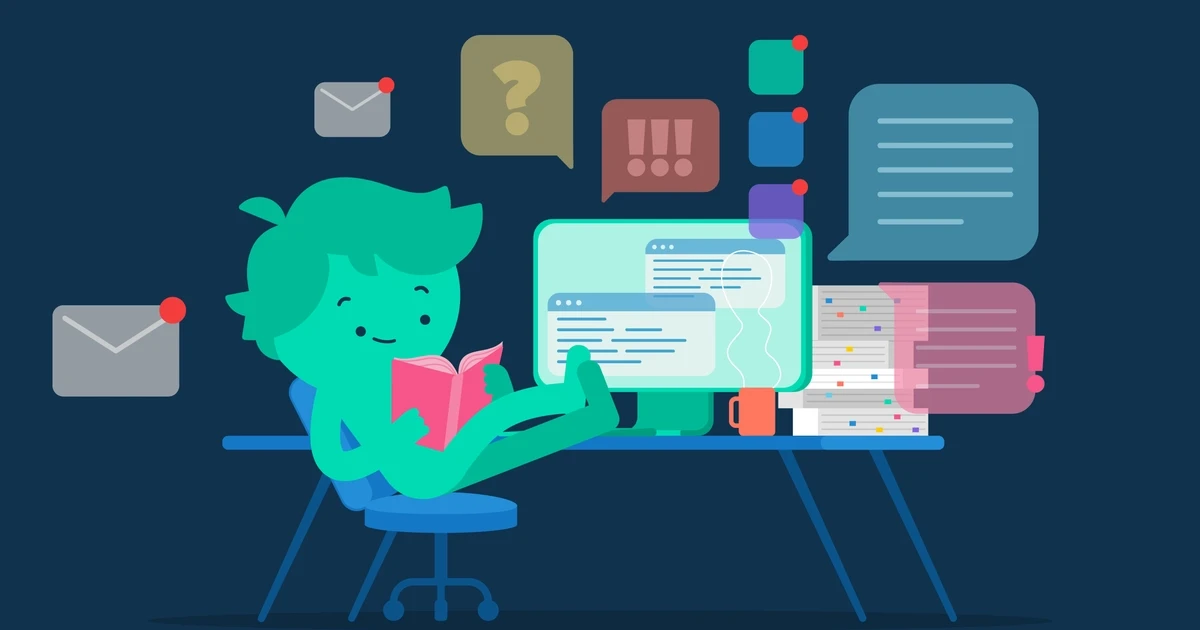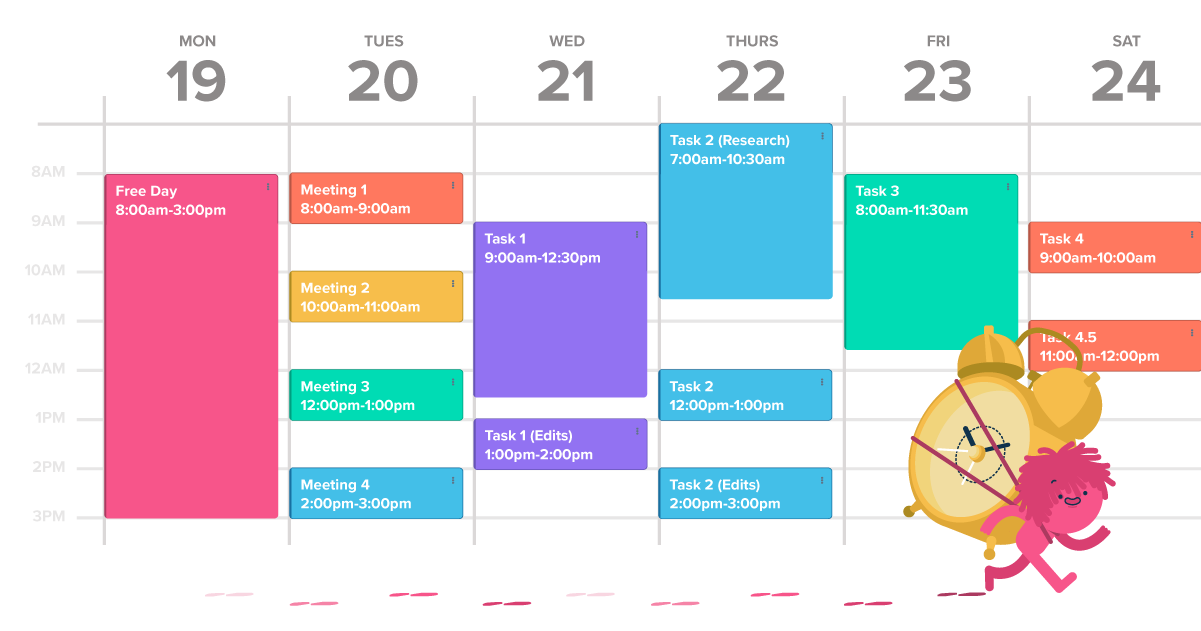Learning Plan – Definition and Meaning
It may be August, but it’s never too early to start eating away at your nerves about how you will face the next semester, amirite? 😉 No, of course not; you don’t have to eat yourself up yet! This is, after all, the time to rest. However, it’s always good to be self-aware and assess your previous year. Was it successful? Were there things you wish you had done differently? Take this time to consider what strategies worked well and which ones may need to be left in the past (hint: procrastination may not be the best approach to quality studying).
Whether your semester has started or not, it’s never a bad idea to consider creating a learning plan. A learning plan is a document that outlines your learning progress over a period of time by marking when you’re going to do certain things and how much you’re expected to achieve on certain days.
Why You Need an Individual Learning Plan
‘It was the first day of the Easter holidays and Hermione, as was her custom, had spent a large part of the day drawing up revision timetables for the three of them.’
— JKR (OP29)
Reading about Hermione always made me want to do the same; you should too!
It may be tempting to go online and try to download a sample learning plan to ease your troubles. But I have bad news for you: Only you can make a learning plan that works for you. Sure, there may be templates that you find helpful, but even so, it doesn’t take much time to write down the dates and content you wish to cover.
So, how do you go about creating one?
- Check the syllabus. When you start your courses, get acquainted with how they’re structured, how often you have to work to prepare for your lessons, how much material is included, and what kind of assignment awaits you at the end. If you have an exam at the end of the semester, you should divide the content in a way that would allow both learning and revision. On the other hand, if your course demands a term paper, make sure to leave enough time in your plan to do the research and write the thing.
- Consider how much time you have. Does your exam happen on the last day of the semester, or is there a bit of breathing time in between? When are your papers due? Are there assignments you need to submit during the semester? The answers to these questions will inform you how much you need to work daily to meet your goals.
- Work with a calendar. There is no point in trying to plan anything unless you know WHEN you’re planning it for. You don’t need fancy expensive planners – a simple wall calendar and a notebook will do. Mark all deadlines, exam days, and other relevant dates (like scholarship application timeframes), and make sure to check them regularly. Once you know WHEN you’re preparing for, you can plan HOW you’re going to do it.
- Prioritise. Not every course will be equally demanding, time-consuming, or hefty, so list the more difficult ones as high-priority tasks interspersed with easier ones.
- Be reasonable about your capacities. You cannot study for hours on end without breaks. You also can’t expect to cover hundreds of pages in one day or spend ten hours at a desk without having your head explode. Some tasks will take more time than others; some assignments may be more difficult to process.
- Plan for rest days. You need to have some days off when you’ll de-stress, spend quality time with friends and family, or enjoy ‘best-of-Netflix’ binge-watching.
- Leave enough cushion time. Some days you might not feel like it – your mind may be wandering or you could be tired or even sick. Don’t beat yourself up about it when it happens. Better plan in advance and leave ample extra time for such occasions.
- Aim for study+re-learning+revision. You shouldn’t just plan for studying because a good deal of it tends to get lost in your mind, necessitating re-learning some of the content. Once you’ve been through it several times, simple revisions will be enough.
- Stick with it! Nothing is a bigger waste of time than drawing up plans, colour-coding them, plastering stickers all over them, and hanging your documents on the wall if you’re not going to follow your own learning plan. Once you’ve drafted the outline of your objectives and the timeline for accomplishing them, you should do your best to follow through. Otherwise, you may as well have done nothing at all.

Benefits of an Individual Learning Plan
In addition to actually having a tangible plan and the ability to cross things off it (which is a rewarding experience in and of itself), there are multiple benefits of having your personalised learning plan:
- Increased self-awareness. Planning your study sessions, meeting deadlines, and adjusting to new circumstances is not an inborn skill. It requires self-assessment and the willingness to learn about your limits and strengths. For example, if you know you’re most likely to write good papers in the morning, you should plan accordingly. If your focus is better in the evening, make the most of it for studying. On the other hand, if you know you depend on power naps, leave some time in your schedule for those.
- It sets achievable goals. You don’t need to fret about hitting targets someone else has set up for you. With individual learning plans, you can decide how much you can do and when. Plus, meeting your standards motivates you to push on.
- It enforces discipline. When you have a laissez-faire attitude to your studies, you don’t work on your discipline and end up either studying at the last minute (which can be fixed) or stressed and burnt out. On the other hand, when your plan is laid out in front of you, you cannot ignore it as easily and are more likely to stick to it.
If You’re a Teacher/Tutor Planning for Others
It’s not only students who have to make learning plans. Sometimes teachers or even tutors have to introduce the idea to follow their students’ progress. If you work as a teacher or have an evening job as a tutor, you can make your students’ (and your own) lives easier by creating one of the following learning plans.
Problem-Based Learning Plan
Problem-based learning is a pedagogical strategy that posits that students do well when they are exposed to a curriculum structured around comprehensible, realistic problems. These problems are context-specific and should be challenging enough to promote individual engagement, discussion, and a facilitated learning process. This approach is particularly useful in humanities, as its aim is to lead to more open-ended discussions. On the other hand, you can also present maths and physics problems and arrange your lessons around them.
Project-Based Learning Plan
If your students are old enough and ready to take the initiative, project-based learning is a great tool to incorporate into your lesson planning. In this method, students engage in meaningful (and often personally significant) projects through which they acquire intended skills. For instance, a biology project on collecting a herbarium will teach students to recognise various plants, name their features, and even whether/how they are helpful to humans (e.g. various medicinal herbs).
Learning-Style-Oriented Plans
As you know, there are different learning styles. Students sometimes gravitate towards only one; other times, they combine them. You can run a quick survey to determine what kind of learning your students prefer, or you’ll simply notice certain tendencies as time passes. While creating a completely individual learning plan based on learning styles is extremely time-consuming (and we know that teachers are criminally underpaid as it is), you can vary your lessons by including video or audio clips, images, some movement, or occasional brain-break games.

Self-Directed Learning Plan – Template or No, Planning is Good for You
Learning plans are useful tools that help you organise your study times, meet deadlines, and track your personal academic development. They can be used by students and professionals alike and have been shown to have great benefits, such as increased self-awareness, better study habits, and higher discipline.
There are some templates that can guide you in creating your own learning plan, but for the most part, the best way to approach this is to create an individual course of action. The best way to deal with such a situation is a bit like making a war strategy: divide and conquer by dividing the tasks and tackling them one at a time.
Here are the most important tips:
- Check all important dates for each course.
- Consider how much work each course would take.
- Use the calendar and write down daily objectives.
- Divide your tasks into reasonable chunks.
- Plan for rest and revision days.
- Stick to the plan.
Whether you’re a student or a teacher, do your best to create achievable goals and don’t stress too much over creating a perfect learning plan – perfection is not the objective; your learning objectives are!
By the way, the StudySmarter app also offers a free intelligent study planner, so be sure to check that out 😉.
To make a learning plan, mark all important dates and deadlines on your calendar. Check your course syllabus and the scope of the content you need to cover. Divide your assignments into sizeable chunks and assign them to those days when you want to study. Plan for rest and revision days, and stick to the plan!
A learning plan is a tool that helps you organise your study time in a way that will allow you to cover all the materials, revise them, and track your progress. It works best with calendar notes and planners.
You should structure your learning plan around meaningful units, problems, or projects in a way that will give you the sense that what you’re learning is applicable in real life and will be useful to you. Plan and carry out project-based learning in sustained efforts, and always try to find ways to use what you’ve learnt.
How we ensure our content is accurate and trustworthy?
At StudySmarter, we have created a learning platform that serves millions of students. Meet the people who work hard to deliver fact based content as well as making sure it is verified.

Gabriel Freitas is an AI Engineer with a solid experience in software development, machine learning algorithms, and generative AI, including large language models’ (LLMs) applications. Graduated in Electrical Engineering at the University of São Paulo, he is currently pursuing an MSc in Computer Engineering at the University of Campinas, specializing in machine learning topics. Gabriel has a strong background in software engineering and has worked on projects involving computer vision, embedded AI, and LLM applications.
Get to know Gabriel




